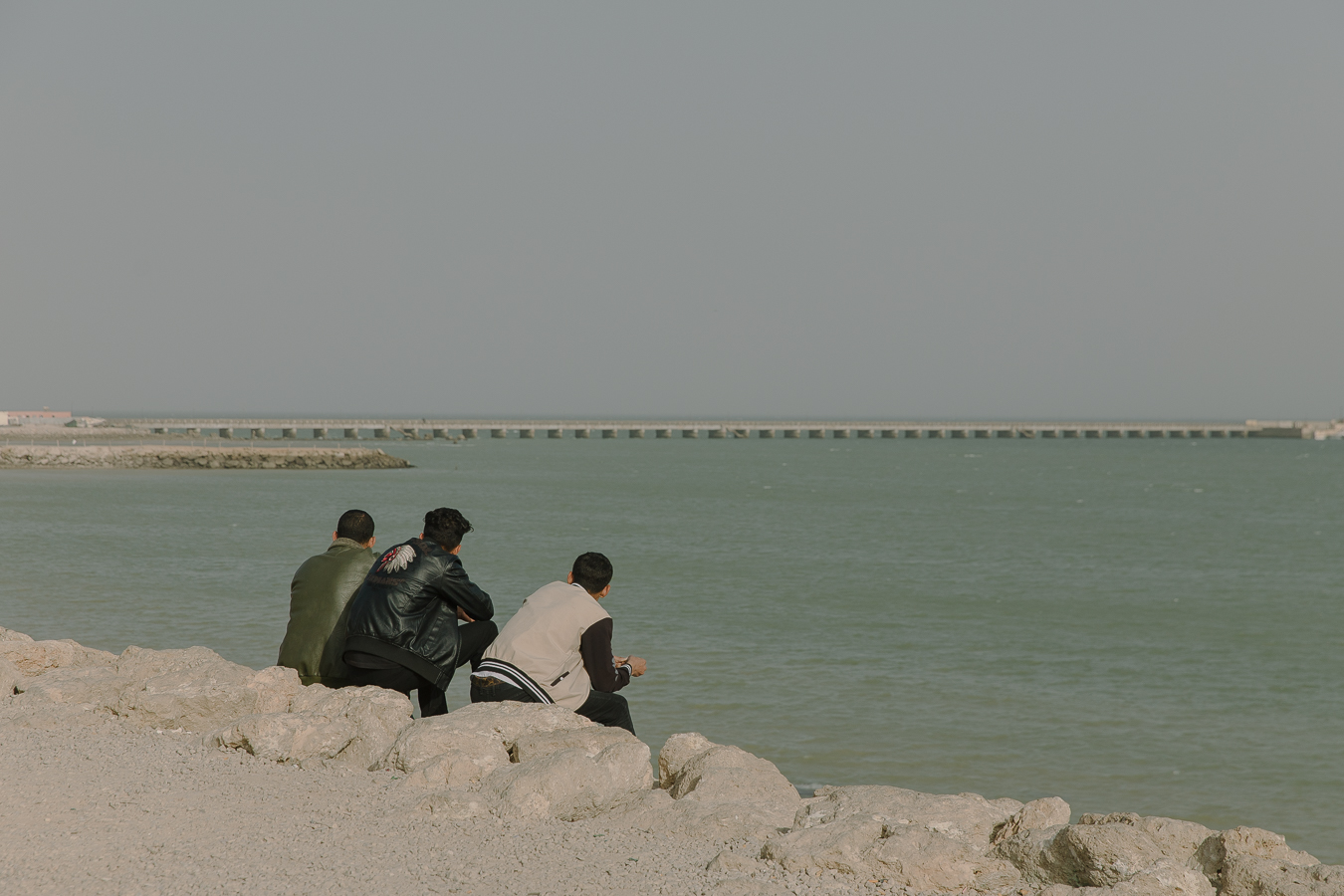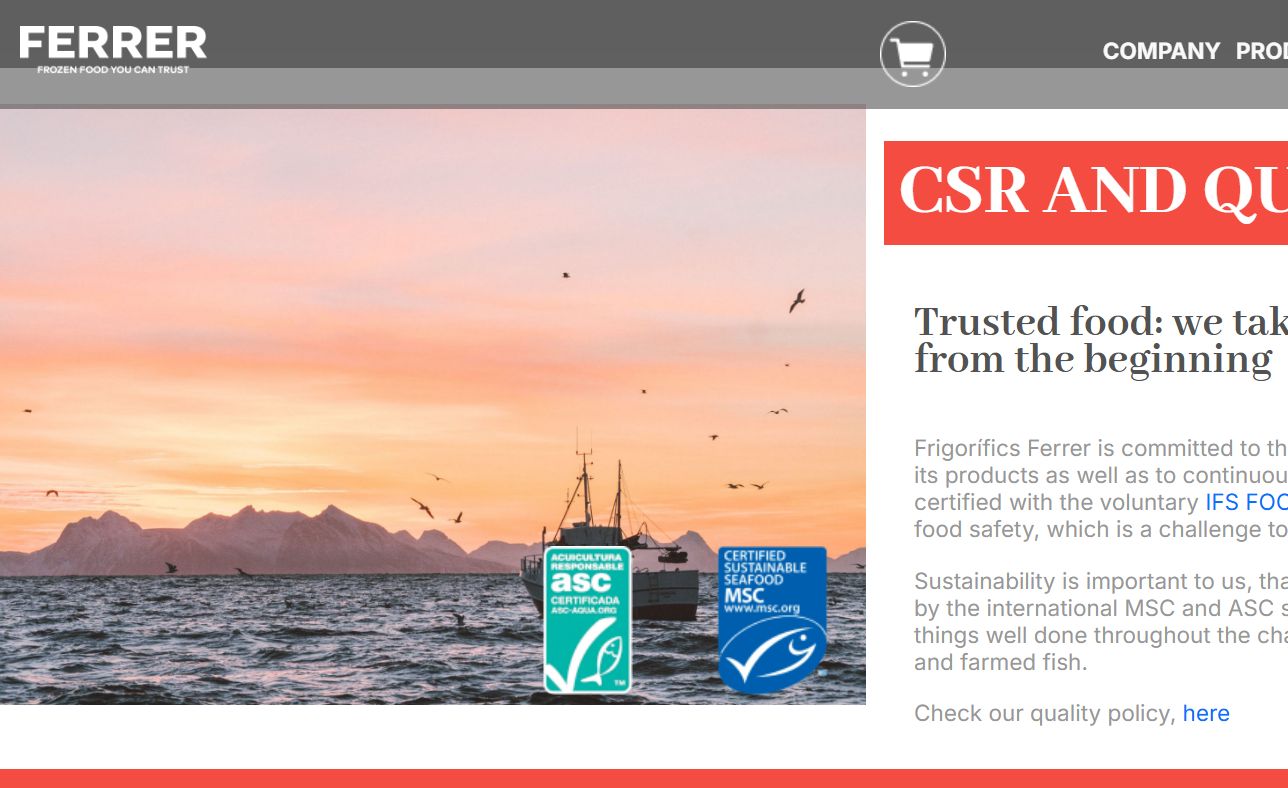
A publicly organised mission will take Canary companies into occupied Western Sahara later this month.
Foto: Youth near Dakhla Port, 2024.
The Canary Islands’ public trade agency PROEXCA, together with the Canary Ports Federation (Fedeport), is organising a commercial delegation to Dakhla in occupied Western Sahara, scheduled for 29 November to 2 December 2025.
The event is promoted through the PROEXCA webpage (or download) titled “Puertos Dakhla 2025”, which calls for Canary companies to register for the mission focused on port development, logistics connections, and maritime services in the Moroccan-occupied territory.
The event is organised by PROEXCA and Fedeport. PROEXCA is a publicly owned Canary Islands government agency tasked to boost trade, promoting internationalisation, investment attraction, and commercial expansion for Canary-based companies. Fedeport is a regional association representing the interests of port authorities and port-related companies across the Canary archipelago.
The mission’s focus on port connectivity is politically and legally problematic. The Moroccan government has for years been developing Dakhla’s port structures as part of its strategic plan to consolidate control over Western Sahara.
By encouraging Canary companies to participate in Moroccan port-related projects in Dakhla, the organisers risk creating business dependencies that inherently validate Morocco’s claims over the territory. The PROEXCA website frames the event as an opportunity for companies in maritime operations, transport, logistics, export services and supply-chain management - all of which directly intersect with the movement of natural resources out of Western Sahara. The website informs that the destination of the trip is “Dajla, Marruecos”.
The mission is organised “in collaboration with local and regional Moroccan entities” and “designed for Canary Islands companies in the port and maritime sector and related industries, focused on capitalizing on the opportunities of the future Dakhla Atlantique port. The development of Dakhla as a platform for regional integration and a hub for port development creates opportunities”, the website explained.
That this event is being promoted as routine commercial outreach is deeply problematic. Western Sahara is not internationally recognised as part of Morocco, and the EU Court of Justice has repeatedly held that the territory has a distinct legal status that requires the consent of the Sahrawi people for any economic activity.
There is no reference in the Canary website that Morocco has no legal mandate or sovereignty over Western Sahara.
Organising a business delegation into the territory on Morocco’s terms, without a single reference to the Sahrawi people or the conflict, risks normalising an illegal situation and embedding Canary institutions in the political architecture of the occupation. It also risks placing Canary companies in a situation where they sign contractual agreements that are null and void - with the wrong government.
“Public institutions in the Canary Islands have a legal and ethical responsibility not to facilitate economic opportunities that undermine international law. Sending a delegation to Dakhla — funded, promoted and organised by government-linked bodies —is a problematic political act. This is a reckless attempt to turn a conflict into a business opportunity. Public funding must not be used to legitimise Morocco’s occupation of Western Sahara”, Roberto Cantoni of Western Sahara Resource Watch in Spain told.
Since you're here....
WSRW’s work is being read and used more than ever. We work totally independently and to a large extent voluntarily. Our work takes time, dedication and diligence. But we do it because we believe it matters – and we hope you do too. We look for more monthly donors to support our work. If you'd like to contribute to our work – 3€, 5€, 8€ monthly… what you can spare – the future of WSRW would be much more secure. You can set up a monthly donation to WSRW quickly here.
New controversial energy infrastructure to be built in Western Sahara
The Moroccan government has opened for a relatively large tender in Dakhla.
Spanish construction group to develop occupied city
The Spanish construction group Secopsa has obtained a contract of 6.8 million € from the Moroccan government to redevelop an area of El Aaiun, the occupied capital of Western Sahara.
Spanish tugboat company going to Western Sahara
The Spanish Boluda Group is looking to Dakhla and El Aaiun in occupied Western Sahara.
MSC’s name misused to whitewash controversial fish trade
The certification scheme MSC guarantees that no fisheries in Western Sahara are certified. But Spanish food distributors give another impression.


